We support national NHS campaigns which raise awareness of early signs and symptoms of cancer and encourage the public to seek advice of their GP. During the COVID pandemic, the Help Us Help You campaigns have also provided reassurance that GP practices are open and GPs want to see patients with cancer concerns.
We also work with local and national cancer charities to support awareness months.
Cancer awareness campaigns, information and news updates are promoted through Our Partner Bulletins
Our cancer awareness campaigns are also shared with our Community groups via our Community Connections bulletins and via the Alliance’s social media channels - Twitter, LinkedIn, Facebook and YouTube.
Resources include public-facing information to raise awareness of early cancer symptoms, and health care professional resources, such as training webinars, to support early diagnosis can be found here on this page.
You can find translated patient information about cancer awareness, symptoms and support by visiting our translated cancer support information page.
Cervical screening is available from 25 years to 64 years in England and, currently, people aged 25 to 49 receive invitations every 3 years and those aged 50 to 64 receive invitations every 5 years.
However, according to Jo’s Trust, the UK’s leading cervical cancer charity, one in three women and people with a cervix don't attend cervical screening. Help change that statistic by sharing the resources below.
The charity has helpful posters and information leaflets about cervical screening and facts about cervical cancer. You can download these materials for free from the Jo’s Trust Information Shop including an Easyread booklet about having a smear test.
And download this poster: Cervical cancer symptoms which has a QR code linked to the Jo’s Trust website.
GRACE is a Surrey-based gynaecology charity which supports women with gynaecological cancers by raising awareness, funding research and providing local hospitals with vital surgical equipment. The GRACE website has useful information about cervical cancer symptoms and the importance of screening.
GRACE can be found on Twitter @grace_women and Facebook @GRACECancerCharity.
Our colleagues at North East London Cancer Alliance have created an animated video which dispels the myths of cervical screening. You can view this below:
Gateway C has a `Cervical Cancer – Early Diagnosis’ course for healthcare professionals. You can find this and more training opportunities on our Workforce and Education page
The Jo’s Trust charity provides information for healthcare professionals who are supporting patients through HPV, cervical screening, colposcopy, and cervical cancer. You can find it here on the Jo’s Trust Professional section.
- Cervical Screening Prevention Week takes place in January each year.
- September is Gynaecological Cancer Awareness Month
NHS England launched its Help Us Help You Abdo-Urological Cancer Awareness campaign in summer 2021. The campaign seeks to address the barriers that are deterring patients from accessing NHS services. It focuses on encouraging the public to contact their GP if they are worried about symptoms of abdominal and urological cancers such as tummy discomfort or diarrhoea that lasts for three weeks or more, or if they've seen blood in their pee - even just once.
Social media images, such as this one below, posters and information leaflets can be downloaded for free from the NHS Help Us Help You Abdominal and Urological Symptoms of Cancer Resources page. You will need to register to sign in.
.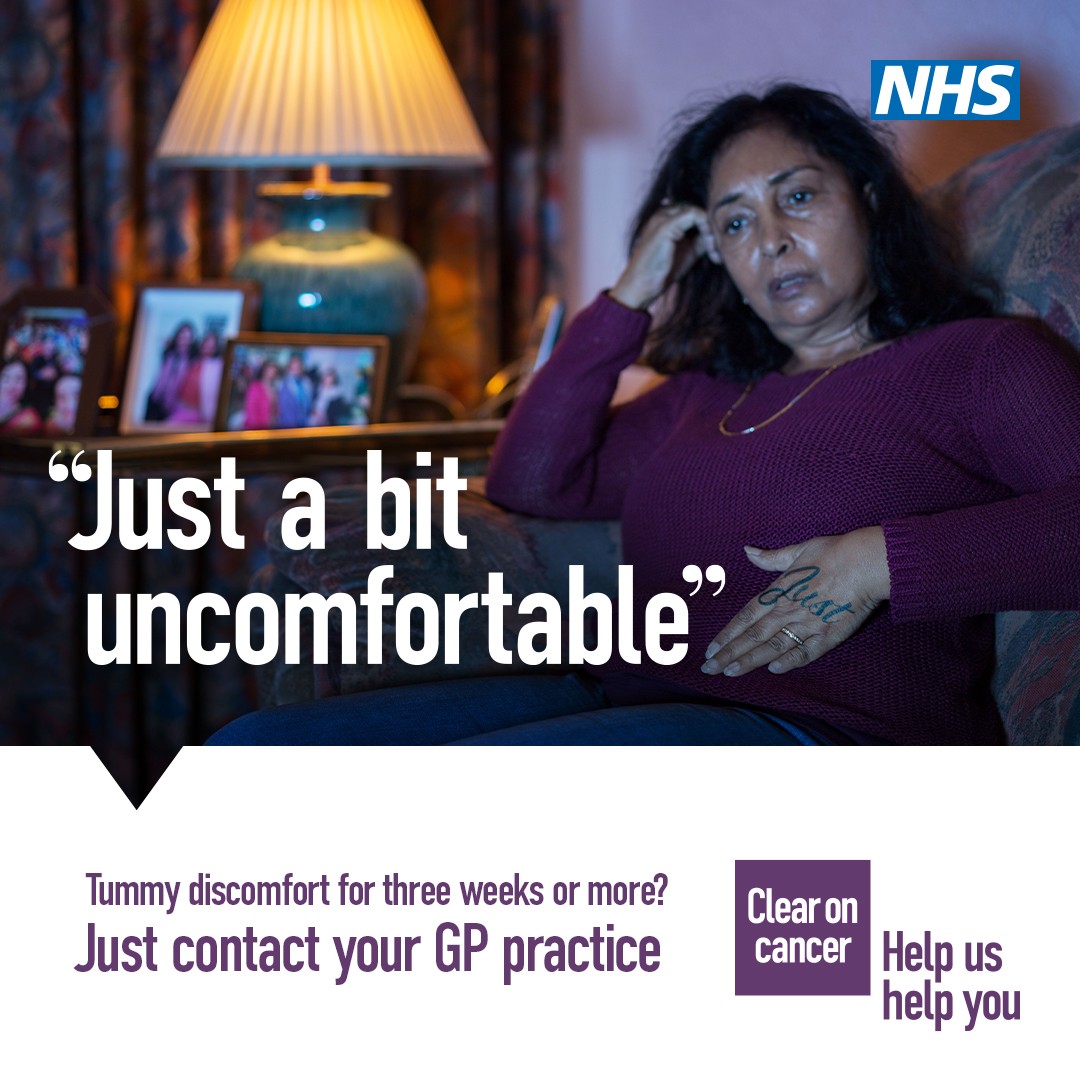
- May is Bladder Cancer Awareness Month
- September is Urological Cancer Awareness Month
Early detection of lung cancer makes it more treatable, so encouraging people to recognise these symptoms and to see their doctor sooner could save lives.
The NHS Help Us Help You Lung campaigns focus on the themes of early detection saves lives and `not all coughs are COVID’, encouraging people to see their doctor if they have had a cough for three weeks or more. Posters, social media animations, information leaflets and more can be downloaded for free from the NHS Help Us Help You Lung Cancer Awareness Resources page. You will need to register to sign in.
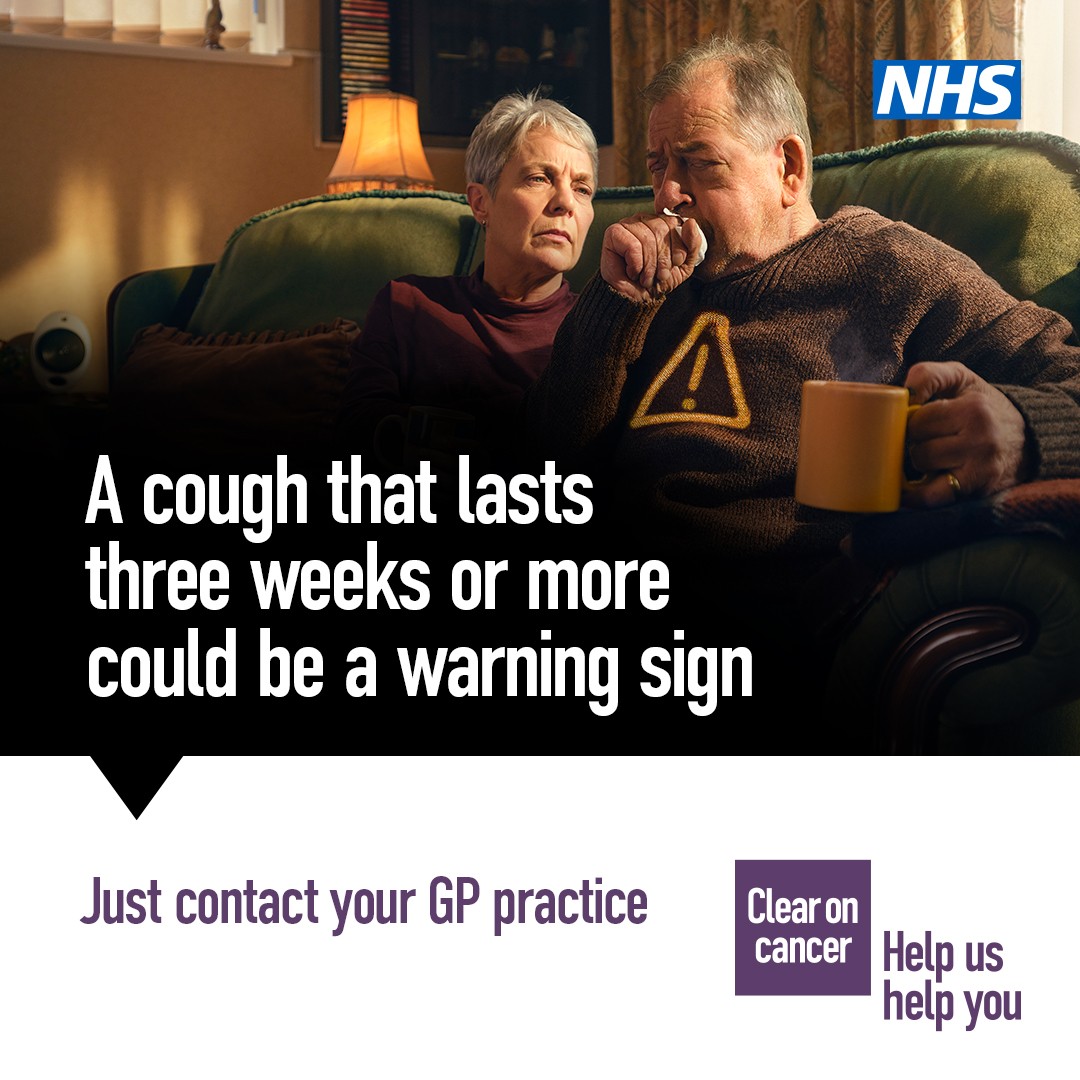
To support the Help Us Help You campaign, we asked two local GPs, one from Surrey and one from Sussex, to talk about why not all coughs are COVID and what to do if you have had a cough for more than three weeks.
The NHS Better Health Quit Smoking campaign helps people make quit attempts by reminding people of the harms of smoking and signposting to support. Posters, social media animations, information leaflets and more can be downloaded for free from the NHS Better Health Quit Smoking Resources page. You will need to register to sign in.
We are very grateful to these patients who have given permission to use their cancer experiences to raise awareness:
Mark Jenkins from Horley, Surrey, was diagnosed with lung cancer in July 2020.
He had a lobectomy (partial removal of left lung) in September 11, 2020 at St George’s Hospital, followed by a course of chemotherapy at St Luke’s Centre which finished mid-February 2021. You can read his full story here
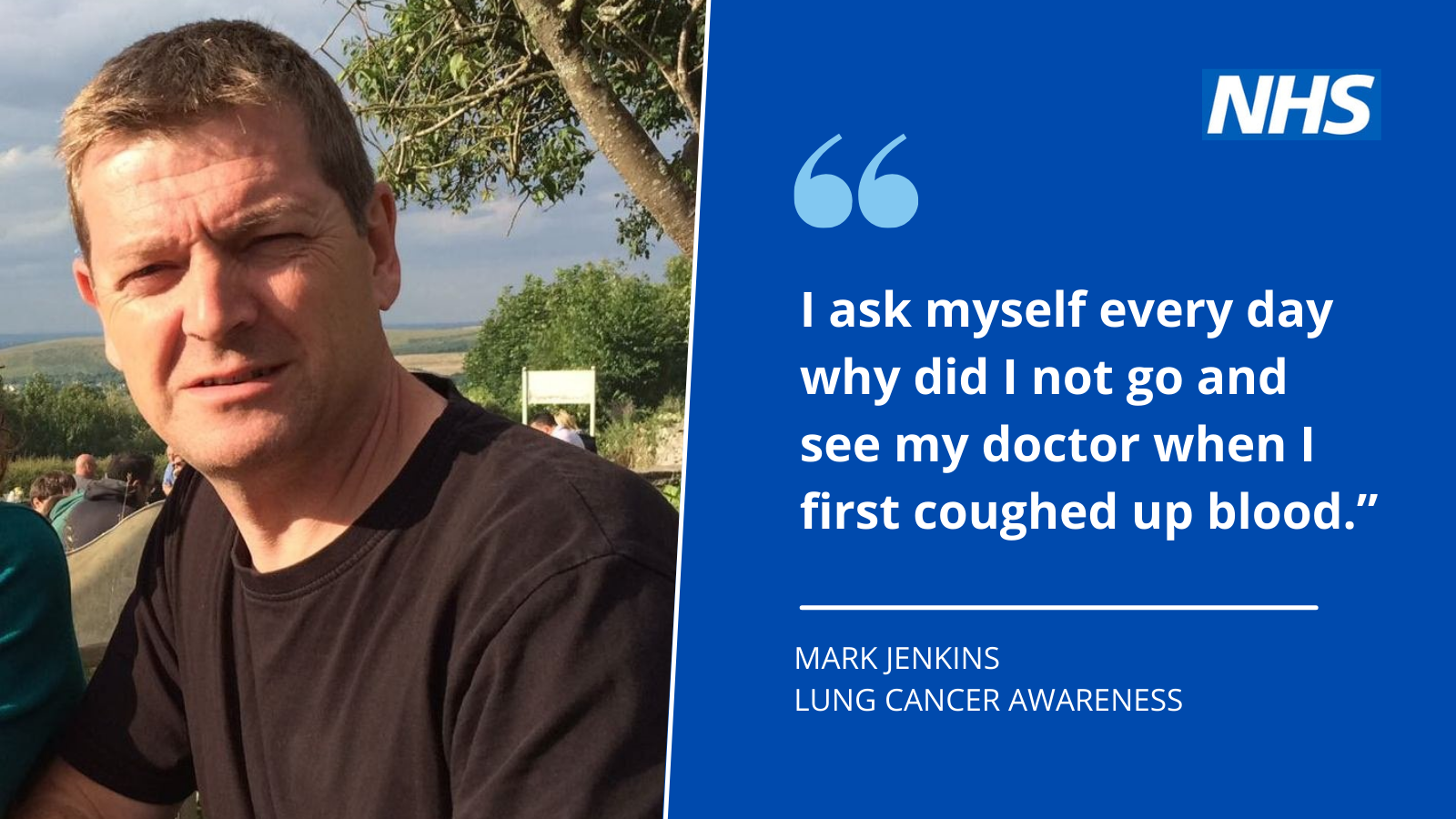
Gateway C has a one hour Lung Cancer – Early Diagnosis course. You can find this and more training opportunities on our Workforce and Education page.
Roy Castle Lung Foundation can provide a range of tools and resources for healthcare professionals, from information booklets to the latest key updates regarding the targeted lung health checks. You can find more information in its healthcare professionals section on its website.
- National No Smoking Day is held every second Wednesday of March
- October is Stoptober – the 28 day stop smoking challenge supported by the British Lung Foundation
- November is Lung Cancer Awareness Month
In March 2021, we joined forces with local gynaecological charity, GRACE, to raise awareness of the key symptoms of ovarian cancer so women can be diagnosed and treated before the disease has spread.
The key symptoms of ovarian cancer are:
• Persistent abdominal bloating or swelling
• Loss of appetite, difficulty eating and feeling full more quickly
• Pelvic or abdominal pain over a period of time
• Needing to pass urine more frequently
GRACE created this poster showing the symptoms of ovarian cancer and explaining when to see your GP. You dan download this poster here: GRACE: Know the Symptoms of Ovarian Cancer.
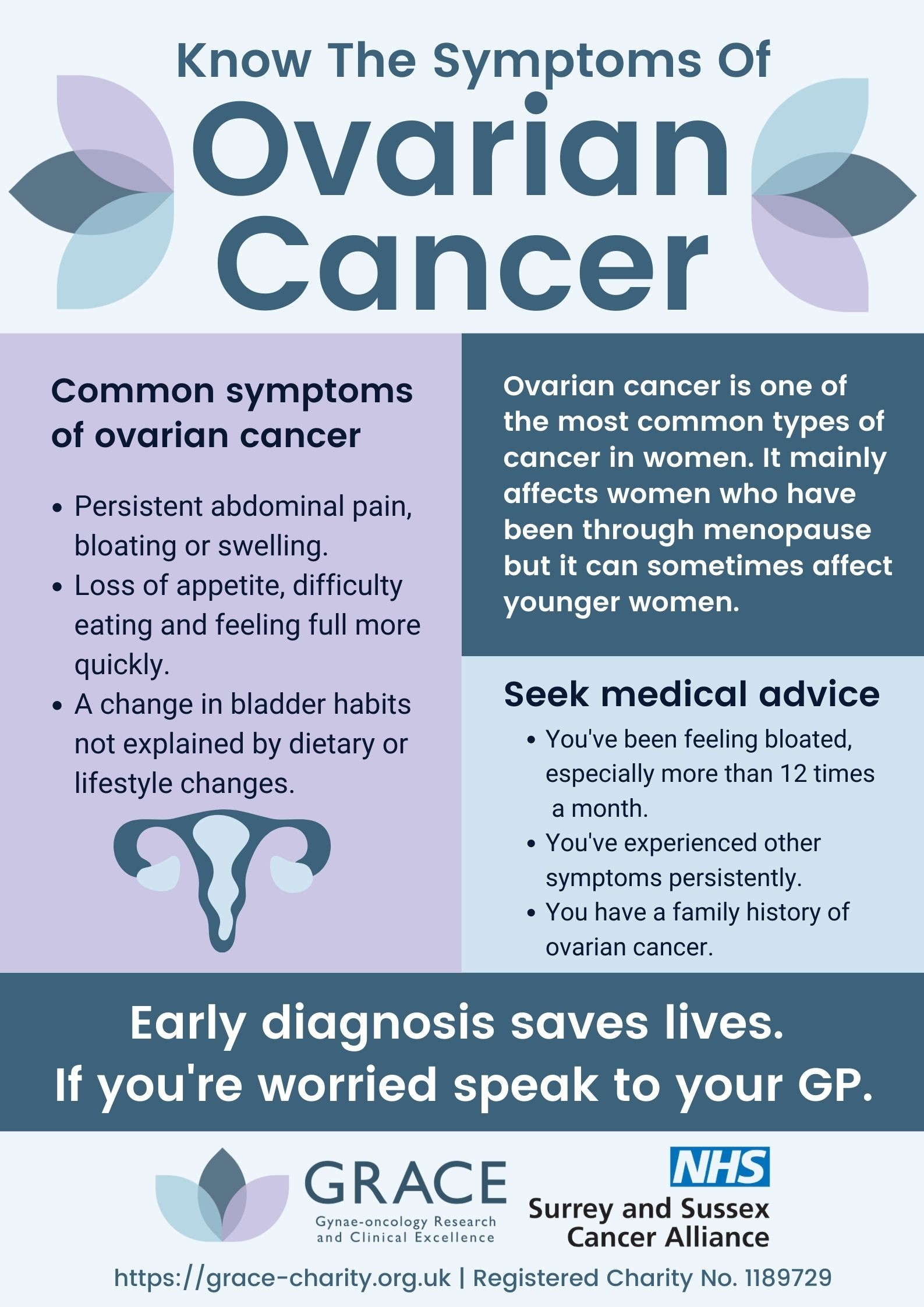
Gateway C has an Ovarian Cancer – Early Diagnosis Course. You can find this and more training opportunities on our Workforce and Education page.
The national charity, Target Ovarian Cancer, provides information and resources for GPs, nurses and other healthcare professionals. You can access these resources from the Target Ovarian Cancer Health Professionals page.
- March is Ovarian Cancer Awareness Month
- September is Gynaecological Cancer Awareness Month
We have worked with Pancreatic Cancer UK to raise awareness among healthcare professionals to encourage the early diagnosis of pancreatic cancer and improve the lives of patients living with the disease.
In Autumn 2021, we raised awareness among diabetes nurses and other healthcare professionals of the link between new-onset diabiets and pancreatic cancer. We also raised awareness among dietiticans and other healthcare professionals of the benefits of Pancreatic Enzyme Replacement Therapy for patients diagnosed with pancreatic cancer. You can find the resources below:
At the time of diagnosis, 65% of pancreatic cancer patients have diabetes, and in more than half of these cases, the diabetes is new-onset. The diabetes diagnosis is, on average, 13 months prior to the pancreatic cancer being identified (source: University of Liverpool research:UK Early Detection Initiative for Pancreatic Cancer)
NICE guidelines advise: urgent direct access CT scan or ultrasound (if CT is unavailable) for patients aged 60-plus with new onset diabetes and weight loss.
You can find more information including facts about pancreatic cancer and information for your patients in our Pancreatic Cancer and Diabetes Bulletin October 2021.
Pancreatic Exocrine Insufficient (PEI) occurs when the pancreas doesn't produce sufficient enzymes to ensure adequate digestion. This can result in food not being digested properly and can lead to malabsorption, malnutrition, and increased risk of mortality. PEI is very common in pancreatic cancer and the main treatment for it is PERT.
You can find more information about PERT including access to a short course for health professionals endorsed by the British Dietetic Association, plus information for your patients in our Pancreatic Cancer and PERT Awareness Bulletin September 2021.
- The third Thursday of November is World Pancreatic Cancer Day
- November is Pancreatic Cancer Awareness Month
We work in partnership with Surrey-based charity The Prostate Project and Prostate Cancer UK to encourage men across the region to understand their risk of prostate cancer and have a potentially life-saving conversation with their GP about having a having a prostate specific antigen (PSA) test. This is a blood test which can help detect prostate cancer.
During Men’s Health Week in June 2021, we launched an ongoing campaign to urge men who are in risk categories for this disease – that is older men over 50, black men and those with a family history of prostate cancer – to contact their local doctor’s surgery and talk to a health professional about the benefits of having a PSA test.
The Big C Conversation - prostate cancer: Sussex residents and prostate cancer survivors Brian Holden and Lance Allen talk about their prostate cancer experience and the importance of getting a PSA test done for men within the high risk groups in this short video.
The Prostate Project is a Surrey-based charity which funds research, and supports men diagnosed with the disease. Its website has useful resources including its awareness guide - `Understanding Prostate Cancer'.
You can find the charity on social media - Twitter @_ProstateProjec and Facebook @theprostateprojectguildford
Felicity Kendal, patron of The Prostate Project, encourages people to talk to their partners about prostate cancer risks in this short video:
You can download The Prostate Project awareness guide - `Understanding Prostate Cancer'
Prostate Cancer UK has information on prostate cancer including translated posters, information for men who have recently been diagnosed, information about prostate cancer treatments and much more. Visit the Prostate Cancer UK publications library and download or order, for free.
We are very grateful to these patients who have given permission to use their cancer experiences to raise awareness:
Alan K from Guildford, Surrey didn’t have any symptoms when he was diagnosed with prostate cancer in March 2021. You can read his story here - Alan K's story
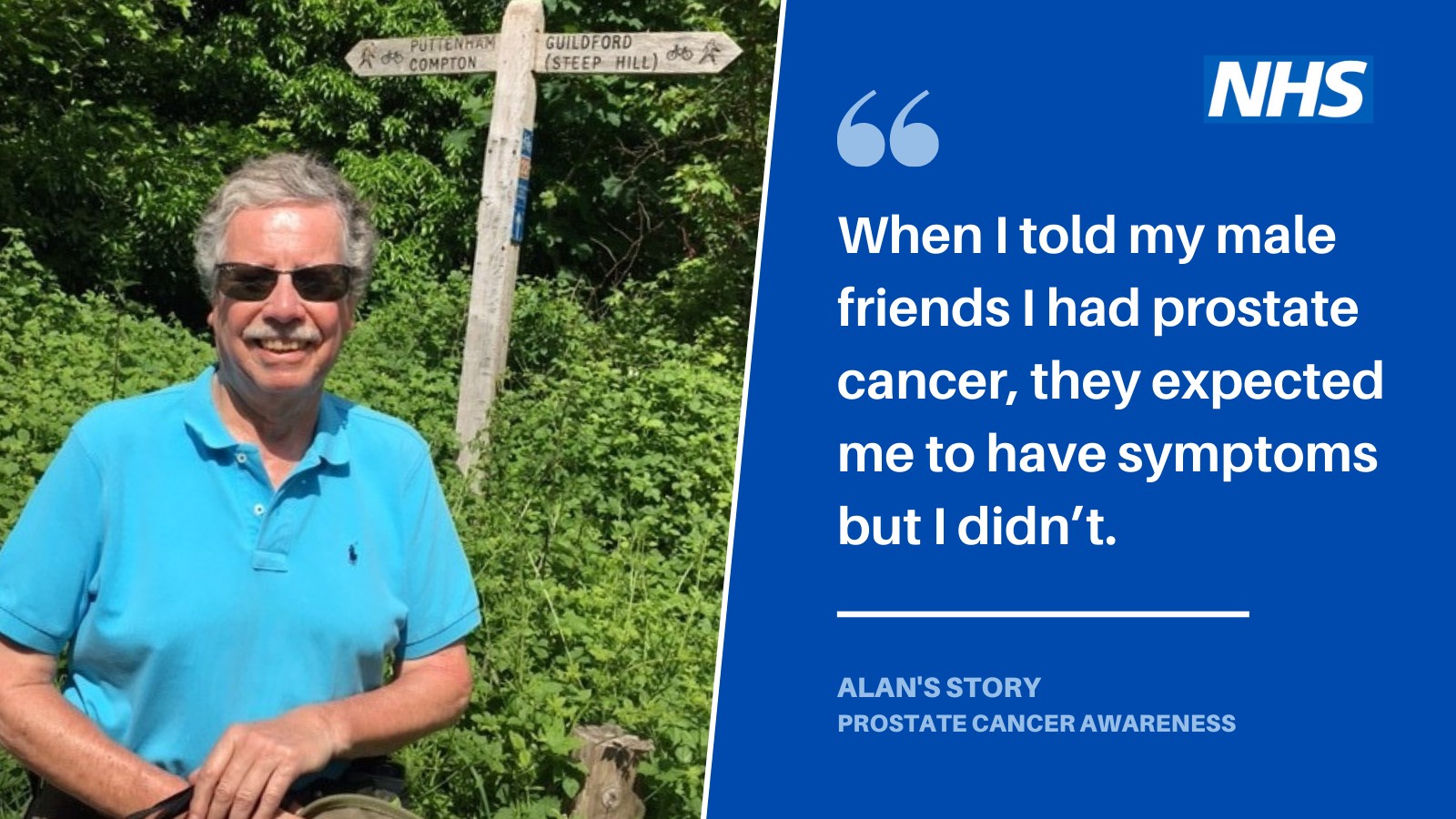
Lance Allen from Findon, Sussex didn't realise he was at increased risk even though his father had died from prostate cancer. You can read his story here - Lance Allen's story
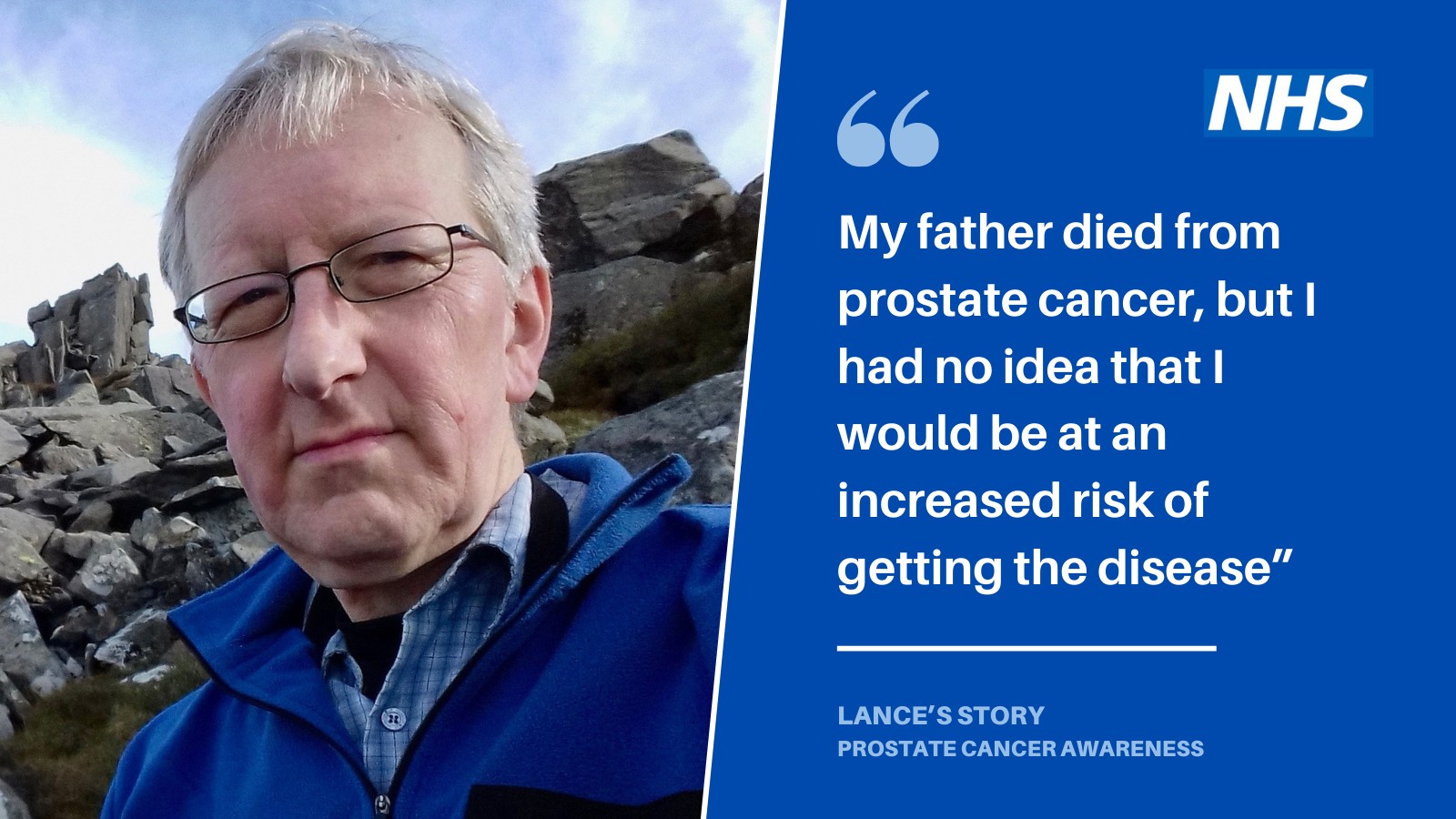
Brian Holden from Hassocks in West Sussex was shocked to be told he had prostate cancer after being referred by his GP to Royal Sussex County Hospital following a raised PSA test. You can read his story here - Brian Holden's story
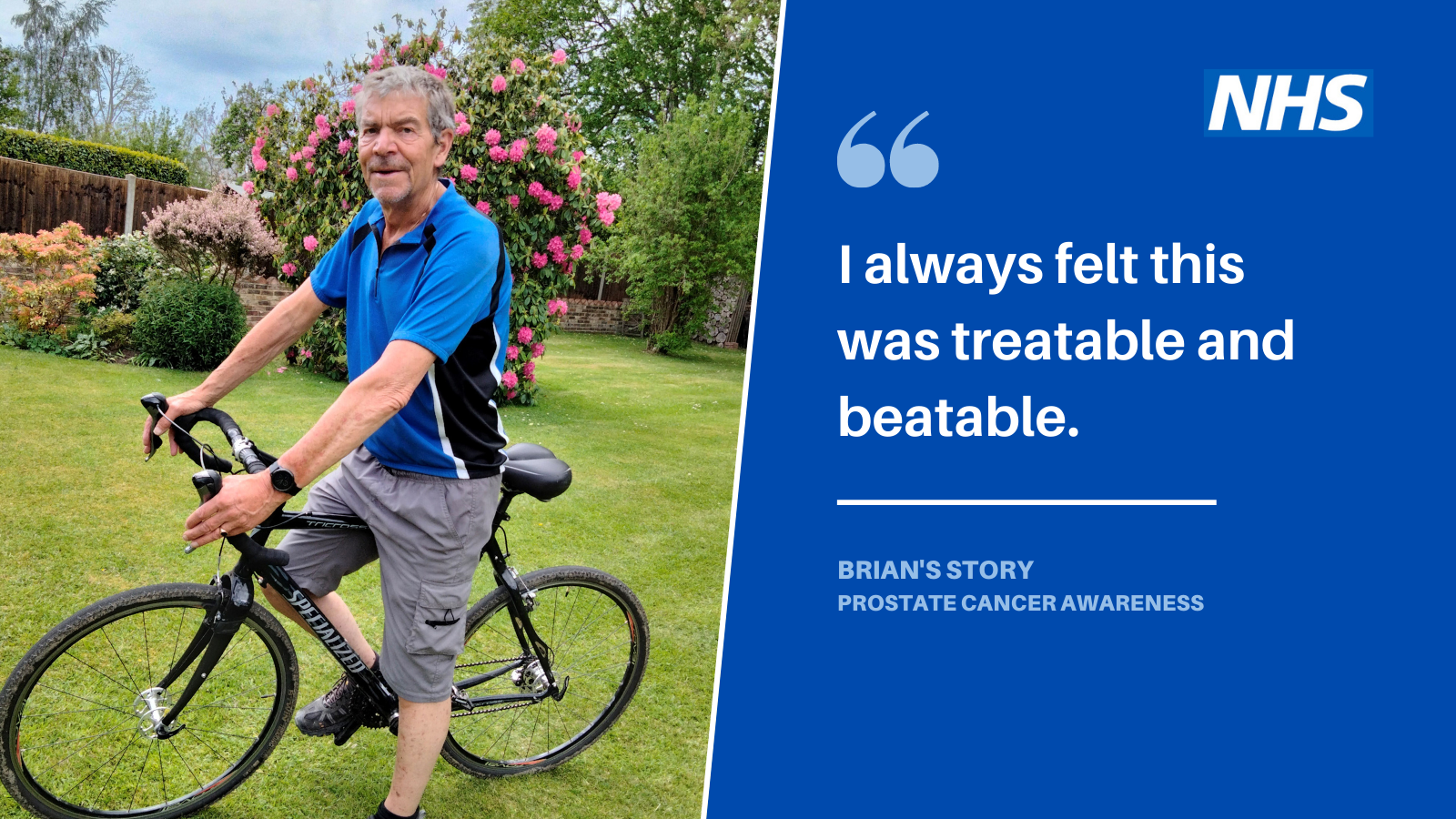
- GatewayC has two prostate cancer awareness courses to support health care professionals -
Symptomatic Prostate Cancer - will support healthcare professionals to assess which patients are most at risk of developing prostate cancer, identify the different ways in which prostate cancer can present and explore appropriate investigations.
Prostate - Responding to a PSA Screening Request - will assist healthcare professionals to confidently discuss requests for a PSA test with patients, the advantages and disadvantages of testing asymptomatic males.
You can find information about Gateway C and more training opportunities on our Workforce and Education page.
- Prostate Cancer UK has guidelines, educational opportunities for in-person and online courses, information on best practice, resources and support for your patients and key policy documents. You can find these resources on its For Health Professionals page
- March is Prostate Cancer Awareness Month
- Men’s Health Week takes place each June just ahead of Father’s Day
- November is Movember – Men’s Health Awareness Month